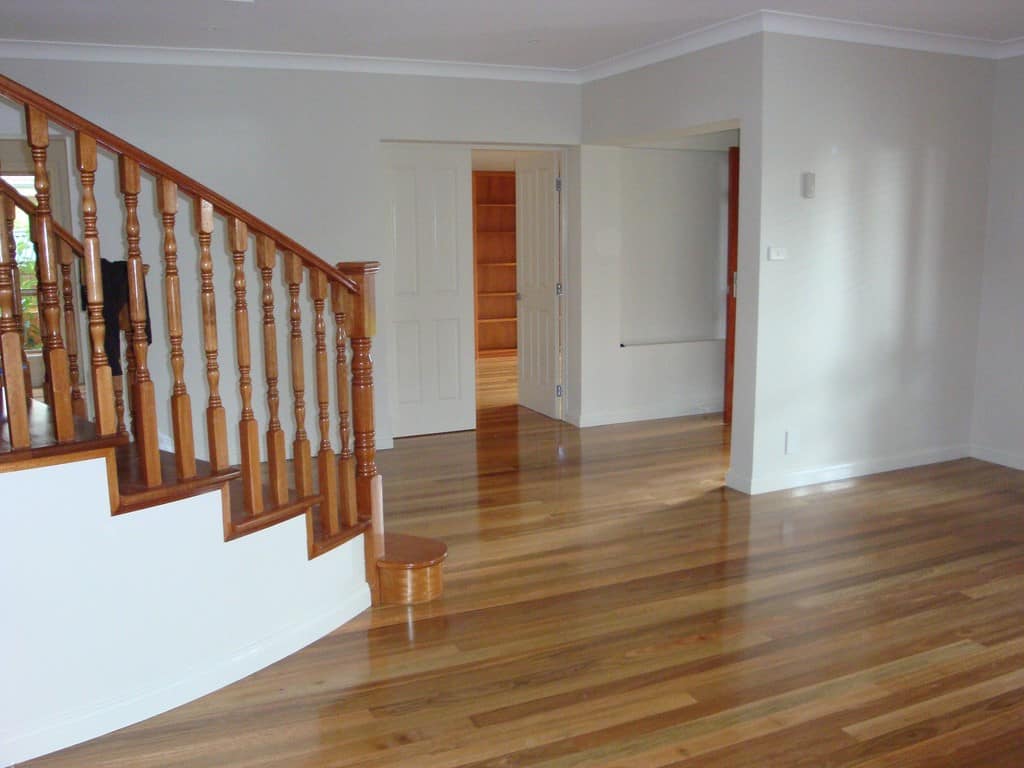One of the first things that a homeowner who has a laundry room has to choose is the flooring. Flooring for a laundry room must be, of course, water resistant or waterproof. It must also be aesthetically pleasing and easy on the feet, as the person who does the wash may also spend time in the from ironing and folding clothes. It should be easy to clean, durable and affordable. Here are some of the best types of flooring for a laundry room.
Ceramic Tile
Ceramic tile is made from firing clay in a kiln. Ceramic fired at very high temperatures, such as porcelain, is waterproof. The problem with this is the tile is vitreous and slippery, but textured tiles can be made slip-proof. Ceramic tile is also a bit hard on the feet but nothing compares to it when it comes to the wealth of colors, patterns and textures it can be found in.
Tile that is fired at lower temperatures, such as terra cotta needs to be sealed to protect themit and if there is grout between the tiles it also needs to be sealed. One trick that is becoming popular is to use colored grout. The color not only adds a bit of panache to the floor tiles but hides dirt and grime.
Concrete
A concrete floor is no longer just a dull gray expanse. Concrete can be polished until it gleams. It can be stained, dyed and textured to resemble natural stone, ceramic tile, brick or even glass and leather. Like some types of ceramic, it needs to be sealed to make it water resistant and protect it from stains. Since concrete is poured in place and is heavy, the laundry room subfloor needs to be strong enough to support it.
Natural Stone
Natural stone is expensive, but since most laundry rooms are small, they might be worth the splurge. Types of stone for a laundry room floor include marble, granite, slate and travertine. Natural stone is beautiful and easy to clean, but because most stone is porous, it needs to be sealed. It’s also a bit hard on the feet, and the homeowner might want to lay down a mat or two. Like concrete, natural stone needs to have a strong subfloor to support it.
Vinyl
Vinyl is a type of resilient flooring that’s prized because of its durability, ease of care, water resistance and variety of patterns and colors. It’s also inexpensive, and a dedicated DIYer can lay down vinyl tiles in their laundry room over a weekend. Vinyl that comes in rolls is best installed by a professional.
Luxury Vinyl
This is high end vinyl that has a design layer made to resemble anything from wood to stone to ceramic tile. It is actually a photograph and can be textured. The patterns and colors of luxury vinyl are so realistic that they fool the casual observer, yet even luxury vinyl costs less than natural stone.
Laminate
Laminate’s appeal is that it mimics hardwood flooring without the price of hardwood flooring. Back in the day, laminate’s one drawback was that it wasn’t waterproof or water resistant. Now, it’s possible to find laminate flooring that is both. Laminates can resemble more common hardwoods such as oak or maple or rare and exotic wood that is hard to harvest in a sustainable way.
Hardwood
Few materials come close to the beauty and sensuousness of hardwood flooring. Hardwood is most often made from deciduous trees such as oak and ash.
Some homeowners are surprised to learn that there is such a thing as hardwood flooring that’s waterproof. This means that it will never be penetrated by water. This is possible because the wooden planks or tiles are treated with a tough, waterproof sealer. Waterproof sealer is often used on engineered wood. This is wood made of inferior layers pressured glued at right angles to each other with a top wear layer of quality wood.

